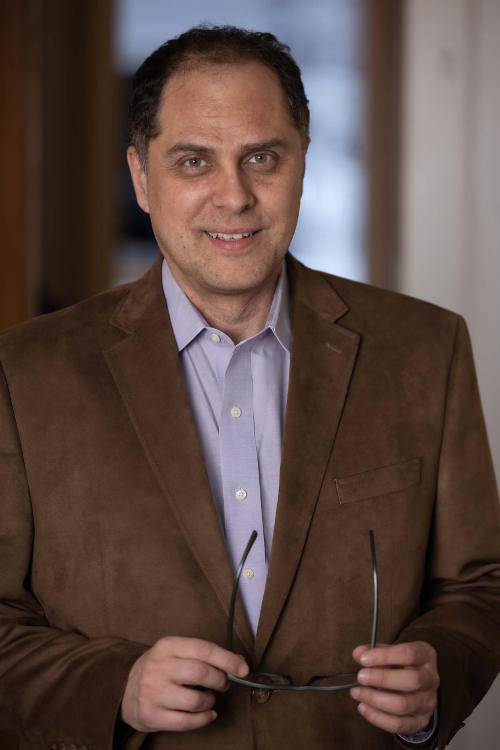* These numbers are conservative estimates. Actual figures might be significantly higher.
New Hope For Patients With Inoperable, Recurrent or Progressive Cancer
The following three clinical studies conducted by Dr. Doru Paul as lead investigator are currently open for recruitment at Weill Cornell Medicine, New York.
Phase 2 Study for Patients With Inoperable, Recurrent or Progressive Disease
A unique study that uses three different immunotherapy approaches in order to increase the chance of cure of patients with recurrent localized or oligometastatic squamous cell cancer of head and neck.
Phase 3 Study for Advanced Head and Neck Squamous Cell Carcinoma
A Phase 3 study trying to increase the chances of cure for patients with localized squamous cell cancer of head and neck. Features Pembrolizumab given prior to surgery and in combination with radiotherapy given post-surgery.
Phase 3 study for patients with unresectable or metastatic squamous cell cancer
A Phase 3 study trying to provide a higher chance of cure for patients with unresectable or metastatic squamous cell cancer of head and neck. Based on Pembrolizumab plus Lenvatinib in previously treated participants with select solid tumors.
Need Advice?
If you are a cancer patient and need further information about these clinical studies please call (646) 962-6200 and set up an appointment at my office at Weill Cornell Medicine, New York.
What Are Clinical Trials?
When the current standard of care does not offer satisfactory results for a particular type of disease, doctors and medical researchers try to figure out new means of treatment, either new medication or procedures, or new combinations or approaches based on existing ones. A clinical trial (or clinical study) is a real-life assessment of the efficiency of the new treatment in curing patients. For the patients participating in the study it is an invaluable opportunity to benefit from the novel treatment, if it proves effective — especially when time is an important factor because of the progression of the disease.
About Dr. Doru Paul
Dr. Paul is an expert in the treatment of head and neck and lung cancer with a track record of developing successful multidisciplinary approaches to treat these conditions. He has also made major contributions as a translational and clinical researcher. Demonstrating a national and international presence in his field, he has widely presented his research defining specific therapeutic targets or processes that can be targeted for the improved treatment of cancer patients.
Dr. Paul has a strong background as a translational and clinical researcher. Since 2003, he has been Principal Investigator or Local Principal Investigator on 40 studies, and co-Principal Investigator on 20 others. He has designed and conducted several investigator-initiated studies and initiated 3 FDA-approved investigational new drug studies. He designed the first in-man pilot study that uses Fluorodeoxyglucose (FDG) for the targeted treatment of cancer, obtaining approval from the FDA and funding from the Northwell Health Cancer Institute.

What My Patients Say
“ He communicates well with his patients, and he never acts like he is in a rush when meeting with you. He is also fluent in Spanish and French, not to mention you can call him if you have any questions, overall he is a 10/10, great oncologist, I would definitely recommend meeting with him if you have head and neck cancer. ”
July 6th 2020
As Featured In:



What I Do
The fundamental role of a medical oncologist is to help patients defeat cancer and survive on the long term — where possible — or at least live longer and better lives with the disease.
For this goal, together with our fellow pathologists, radiologists and surgeons, we use a wide and complex array of diagnostic and treatment procedures, ranging from imaging, blood and genetic testing to chemotherapy, targeted immunotherapy, radiation therapy and chirurgical resection.
I Treat Cancer Patients.
Cancer is an extremely complex disease. Some theories even suggest it is a different form of life.
But we humans are very resourceful beings. New, cutting-edge medication and treatment procedures for cancer have been discovered, and are being discovered continually, supplementing the old, proven method of chirurgical resection.
As an oncologist, I apply this medical knowledge on a daily basis for saving and extending my patients’ lives.
I Study & Research.
To be able to provide optimal treatment to his or her patients, an oncologist must keep up continually with new research. New studies are published every week, new treatments emerge every year or so, and the standard of care changes about every three years.
What helps me keep up with all this new information is an inborn curiosity for all fields of human knowledge, especially for life sciences such as biology and medicine.
Whenever I finally come to understand some of the intricate, subtle processes that make up the inner workings of life and cancer, I literally feel joy.
I Teach.
A lot of the things I have learned about cancer are derived from my own experience as an oncologist, and not from the medical schools I graduated.
Together with fellow oncologists, I try to disseminate medical experience and train new generations of oncologists, so as to give them a kick-start in this common fight of patients and doctors against cancer.
We want young doctors to have this practical information from day one — not after years of medical practice, as we did — because each well-trained doctor will be instrumental in saving his or her patients’ lives.
About Cancer
I have put toghether here a few of my thoughts about cancer. I hope they will be useful for oncology patients to understand the general nature of their disease, the current treatment options, and what they can do to increase their chances of defeating the disease.
About Head and Neck Cancer
There are many types of cancer, and they are usually classified according to the region of the human body where it appears. Each type of cancer involves different treatments, and we doctors usually specialize in treating cancer in one particular body region. I specialize in head and neck cancer, thyroid cancer, and lung cancer.
